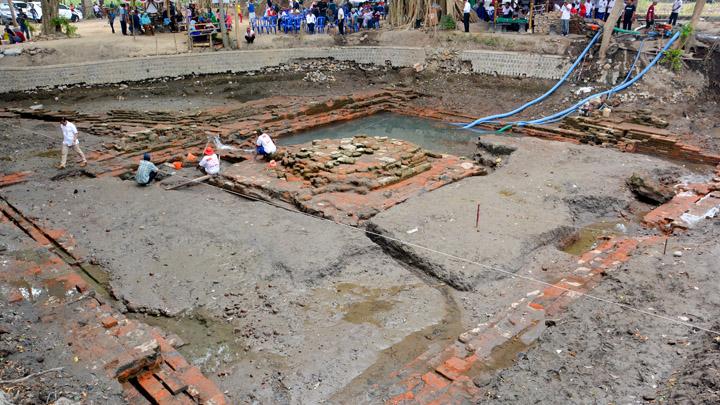
TEMPO.CO, Jakarta - Ahmad Pabuling's backyard in Enrekang, South Sulawesi, looks like a grocery store. In a room called the 'demplot' (demonstration plot) there are glass jars containing chunks of yellowfin tuna, catfish, banana flowers, snails and papaya. There are also herbs and spices such as galangal, zedoary or white turmeric, onion and Javanese ginger also known as temulawak.
These jars contain not edible food, but fertilizer for rice and pepper. The 32-year-old man owns two hectares of land, which he fertilizes using the 'food' in these jars. Before the plant food is placed in jars, it is first fermented with palm sugar for a week. As a result, the ingredients exude a sweet scent that smells nothing like chemical fertilizers.
According to the chairperson of the Kalukini Community of Organic Farmers (Kompak), his plants have grown much lusher after being fed his self-made fertilizer. The rice and the pepper not only grow faster, but they look 'happier' to be with him, expressing gratitude to their master with great organic rice yields. Ahmad reaps abundant harvests after he began applying natural farming techniques in early 2016. "In the past, harvest failure was common," he recalled.
Natural or organic farming began to spark the attention of farmers in Enrekang at the start of last year, inspired by a movement initiated by Armin Salassa in Salassae, South Sulawesi, in 2011. Armin is a farmer and an activist involved in a number of non-profit organizations. He said he was saddened by how often famers in Salassae experienced harvest failures due to long draughts, bad soil and the excessive use of chemical fertilizer and pesticides.
Armin believes that the key to natural farming involves arranging the consumption pattern for plants and avoiding chemical substance. He combines scientific methods with local wisdom when
producing the new type of plant fertilizer. Armin believes plants simply need nutrition from natural ingredients, not chemical substances. For example, cow bones dissolved in acidic vinegar can produce the kalium (Potassium) element beneficial for vegetative growth. Likewise, papaya fruit extract as well as dry-fried and fermented egg-shells can also produce kalium.
At first, only nine farmers practiced natural farming, but now Armin has inspired more than 1,500 farmers, not only from South Sulawesi, but also from West and Central Sulawesi.
Wanting to increase the number of farmers who produce organic fertilizer, Armin discourages farmers from selling their organic fertilizer right from the start. Farmers from all corners of Sulawesi are encouraged to learn natural farming. Some learn directly in Bulukumba while others bring in farmers from Salassae to mentor in their village.
"What I want is for people to see natural farming not only as a technique but also as an ethos, ideology, and the desire [of farmers] to learn from and collaborate with each other," said Armin, who is also the secretary-general of the South Sulawesi Federation of Farmers.
Seven years ago, around a quarter of the 4,000-or-so Salassae villagers chose to become migrant workers, finding employment in Sulawesi's big cities. Residents who opted to remain farmers practiced conventional methods using chemical fertilizers and pesticides. Teaching new farming techniques to the Salassae villagers was a tough task for Armin.
Along with nine farmers, Armin initiated a number of discussions. They talked about several harvest failures and began formulating long-term solutions. At these discussions, the farmers agreed to try natural farming as Armin proposed. They became convinced that natural farming may restore soil damaged by chemical substances.
Restoring the quality of damaged Salassae soil mostly took a little more than three months or around one planting season. But in the case of seriously damaged spots--Ahmad's land, for example--soil restoration would take two planting seasons. "My soil had been accustomed to being doused with chemical substances," said Ahmad. "So, it needed to adapt to healthy nourishment."
The length of the restoration period made farmers pay little attention to natural farming. One of them, 38-year-old Arman Tanggung, Armin's neighbor in Salassae, only began implementing natural farming in 2013. He became motivated after seeing Armin's and other farmers' harvests improve after using natural farming techniques. "Conventional farming had been taught for generations over here," Arman pointed out.
Apart from improving soil quality, farmers must also maintain the consumption pattern of plants: the times when to provide their plants with nutrition and the types of nutrition the plants need. Each square inch of land can be different in terms of what was needed. Armin garnered his knowledge from the Internet and from reading books. (*)
Read more inspiring Outreach stories in Tempo English Weekly News Magazine























